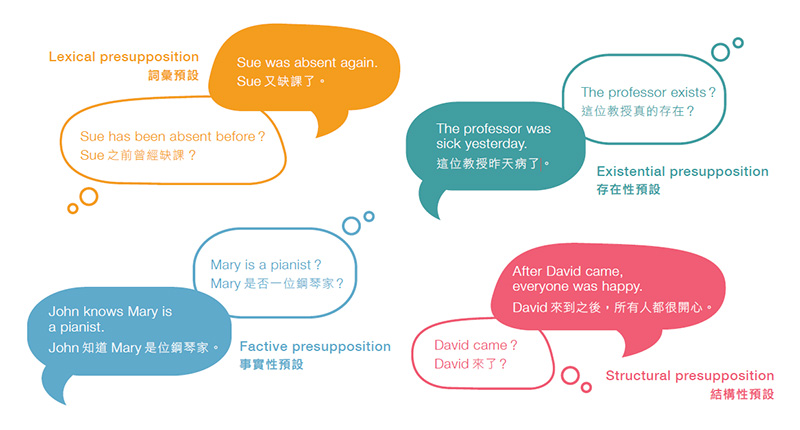
Researchers have found evidence that the inability to comprehend presupposed information may be key to the communication difficulties of children with autism.
Children with autism often have communication difficulties. They cannot understand, share and respond to others’ feelings and perspectives during conversations. No research can explain why they occur in the past. Dr Candice Cheung of the Department of Chinese and Bilingual Studies has recently found evidence of a key factor impeding the communication of children with autism – a deficit in their ability to comprehend presupposed information from received information during conversations.
Effective communication relies on a set of background beliefs (or presuppositions) shared by those involved in conversations. Dr Cheung and her team explored the significance of four common types of presupposition for the communication of children with autism. They analysed and compared data from 21 Cantonese-speaking children with autism and 101 normal Cantonese-speaking children in mainstream primary schools in Hong Kong.
If one person tells another that “Sue was absent again”, the second person usually understands that Sue has been absent before. This is known as a lexical presupposition. In this case, the iterative adverb “again” presupposes that Sue has missed class before. However, children with autism fail to understand that Sue has been absent before.
On the other hand, an existential presupposition is the assumption that things or people referred to by definite descriptions (those beginning with “the”) exist. If someone says, “The professor was sick yesterday”, a hearer assumes that the professor is a real person. A factive presupposition is similar, but triggered by a factive verb such as “know”. If someone says, “John knows Mary is a pianist”, a hearer generally understands that the information “Mary is a pianist” is true. However, children with autism can neither assume that the professor is real nor understand that the information “Mary is a pianist” is true.
In addition, a structural presupposition is triggered by sentences containing a specific construction, such as temporal clauses (those with temporal conjunctions like “before” and “after”). For instance, if one says, “After David came, everyone was happy”, a hearer usually assumes that the content of the temporal clause— that is, “David came” is true while children with autism fail to do so.
Relative to the normal children, the children with autism clearly showed a deficit in comprehending the above presuppositions, a deficit that appears to be due to the disorder rather than deficits in general language ability or non-verbal intelligence.
As an understanding of presuppositions is instrumental to successful communication, the research finding opens up an important pathway for future studies of the same category.♦

